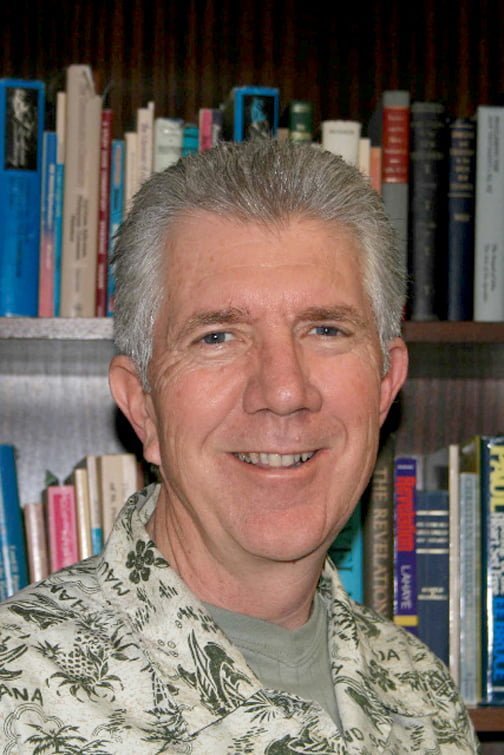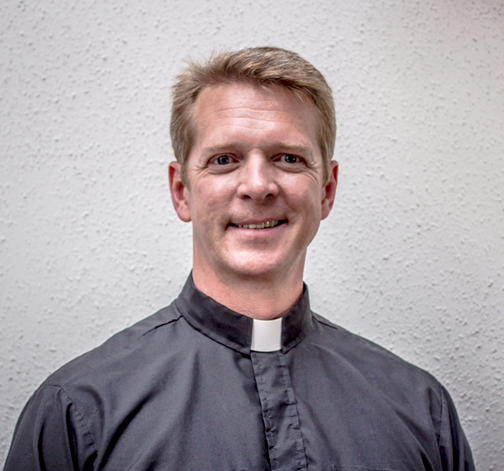QUESTION: My heart goes out to families displaced by the Syrian Civil War. Many have lost their lives and families have been separated. The way politics seem to be playing out the refugees are the losers.
Where is God in all of this? From what I remember about world history, Syria has had many wars. I can’t even wrap my head around a solution, no matter how much I think about it, so I pray for peace for that country. Still, it’s unsettling to see the refugees on the news night after night with no end in sight.
Is there such a thing as divine intervention when God could end this once and for all?
~ Devout Christian
Dear Devout Christian,
The situation in Syria (and in many other parts of the world) is indeed heartbreaking. You have asked one of the most difficult of questions – one that theologians and philosophers have wrestled with for ages and of which many volumes have been written. Men and women more brilliant than I have delved into this issue; and this issue is certainly too complex to answer in a few short sentences. However, I think the more important question is: “What does God want us to do in this situation?”
Jesus answered this question with the parable of the Good Samaritan. When the Good Samaritan saw a man who had been robbed, beaten and left for dead on the side of the road, he didn’t speculate on reasons for this tragedy. Instead, he treated the man’s wounds, transported him to a safe place and provided funds for someone to take care of him. Jesus finished this parable by saying: “Go and do likewise.”
While most of us will not be able to go to the refugee camps to assist or even be able to welcome refugees into our homes and fellowship, we can support organizations that do. Samaritan’s Purse, World Relief, World Vision, Preemptive Love, Operation Mobilization, Doctors Without Borders and many others are there to make a difference. Our financial support can help to alleviate some of the suffering and offer hope to those who are displaced. We can also encourage our government to open our doors to more refugees while still taking the necessary steps to protect us from terrorism.
Finally, our prayers for peace, for wisdom for world leaders, for those organizations that work with refugees and for those affected by this terrible conflict are both needed and appropriate.
Warmly,
Pastor Bill Flanders
bill_flanders@att.net
Dear Devout Christian,
Just as your heart aches for those who have lost their lives and loved ones, God’s heart aches too. These are His children who are killing and maiming each other. It’s heartbreaking for Him to see, just as it is for you and others like you. Unfortunately, we live in a broken world where people tend to want their own way, basically disregarding and rejecting God and all He has done to bring peace to the world. Yet people still blame Him when it really is their own attitudes and choices they are paying the price for. Regrettably, the results of this are all the destructive things that we see on the nightly news.
Two thousand years ago, God intervened in the world when He sent his son to bring a message of peace and to pay the price for the destructive choices being made then and continue to be made today. Divine intervention is still possible today, but it’s up to people to respond and open their hearts to God. It is a matter of choice. God chooses to work through His people who choose Him and His ways.
Praying for peace in that region of the world is an excellent and vital thing for all of us as believers to do. Being the devout Christian you are, your prayers are certainly a key part to ending the bloodshed and suffering. Pray, not only for peace, but also for the people in that country and region to turn their hearts to God. Pray especially for the hearts of the leaders to be changed so that they will stop the killing that they are perpetrating. Pray for God’s anointing on the missionaries and ministries that are there, reaching out to the people, trying to aid them physically, emotionally and spiritually. Pray for those who know God and are believers in that country to take a stand and reach out to aid their fellow countrymen.
Please be encouraged that God hears and desires to intervene when you pray.
Blessings,
Pastor Dabney Beck
dabneybeck.ss@gmail.com
QUESTION: Are we really forgiven for our sins? I have a rather colored past from my teens into my 20s. Then I was fortunate to meet a wonderful woman who helped me turn my life around. I stopped using drugs and hanging out with people who did. It wasn’t easy but, with her encouragement, I succeeded. Really, we succeeded together.
We’ve now been married 10 years and have two beautiful children. Still, my past haunts me and I worry that there will be consequences for what I’ve done even though I didn’t hurt anyone except myself. I didn’t sell drugs; I just bought and used them. I really want to leave all of this behind me and have peace of Your help is most appreciated.
~ Ex-druggie
Dear Ex-druggie,
Congratulations on your 10 years of marriage and continuing to journey toward living a transformed life. It is never easy to make drastic changes in one’s life, as there is always the remembrance of the way things used to be. And it becomes even more difficult when our memories focus most upon those times in the past when we were enjoying life (even if it was not good for us), and forgets the times we were in need, pain or suffering. And, as you alluded to, the past often times seems to “haunt” us and reappear when we least expect it. Although that does not mean that we have not been forgiven.
Forgiveness does not erase the past, but rather moves us beyond it in a way that frees us to become something more, something new. Your life reflects this forgiveness in that you find yourself in a good place, even if and when the consequences of the past come around. Continue the work that you have done with the support of your spouse. It seems to me that you are a very good team and find an even greater strength together that you do individually.
I would add that it may benefit you to find another person to also walk with you in this path … a mentor, a trusted friend, a counselor, a coach, or a pastor/priest … someone who can talk with you about your struggles with the past and the wonderful strivings you have made, someone who can share forgiveness with you again and again, someone who can be a sounding board for the continued transformation that will come.
Consequences may arise from the past but with the support of those in your life you will find that you are able to deal with them in a positive manner and continue to live a forgiven life!
Peace, forgiveness and strength,
Pastor Scott Peterson
pastor@lcifoothills.org
Dear Ex-druggie,
Let me start with two basic answers to the first two sentences in your inquiry. You ask if we are really forgiven for our sins. The answer is yes. Then you mention that you have a colored past. Many do, and some in the Bible did as well. And a number of them went on to write a good portion of the Bible.
Often guilt transitions into shame, which causes us to doubt God’s word. So let me explain guilt and its purpose.
There is true guilt and inappropriate guilt. True guilt is when we have done something wrong and we feel badly for it, which leads to conviction, which leads us to repent, to make restitution, to change our actions and to mend relationships. True guilt leads us to repair. Then we are forgiven.
Once we repent and change our ways, the Bible tells us that “as far as the east is from the west, so far has he removed our transgressions from us” (Psalm 103:12). There is no legitimate reason to continue guilt after we have asked forgiveness and we no longer partake in the behavior.
When we continue to dwell in guilt after repenting, we enter into inappropriate or false guilt. Here one has not fully accepted and integrated that God’s forgiveness is enough. False guilt causes us to feel shame and we become stuck.
You also mention consequences. Any action has natural consequences, whether the action is positive or negative. So, yes, we can have negative consequences for our choices. An example would be if someone were inebriated everyday of his adult life. There might be the consequence of liver disease. Then again, with good genes, there might not. This would be a natural consequence, not a punishment.
Integrating science with spirituality and living with inappropriate or excessive guilt can often be a symptom of depression; obsessing over it often a symptom of anxiety. Another interesting fact is that using drugs in the first place is often self-medicating symptoms of depression, anxiety, grief, trauma and other mental health issues. So often a symptom is medicated with alcohol or drugs. When one stops the substance use the underlying issue can raise its head – for years or until the real cause of our guilt is addressed.
To sum it up, you are completely, beautifully, forgiven. You may have experienced consequences of your drug use, maybe not. God is not looking to punish you with further consequences; He wants you to heal and live in peace. And very often guilt, which leads to shame, is a symptom of depression. Worrying and obsessing over it can create anxiety. Spiritually, my hope is that you find peace in the truth of God’s Word. If you feel there is something more going on, please see a mental health provider; you might be dealing with depression of anxiety.
Rev. Kimberlie Zakarian, Psy.D(c), LMFT
Kimberlie.zakarian@gmail.com
Kimberlie.zakarian@gmail.com




